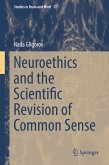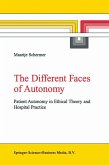This book addresses the pressing issues involved with the ethical conduct of research in one developing world region - the Arab Region. Clinical research has soared in the developing world -as pharmaceutical companies continue their search for regions with large, treatment naive populations - including the Arab region, and has profound implications for the health and the economies for the area. The ethical issues involved with the conduct of such research, however, have so far not been adequately addressed. This volume presents the issues regarding research ethics and research governance that have relevance for health authorities, regulators, industry, and academia. As a multi-authored volume it includes both international and local experts on ethical issues in research, representing all stakeholders, thus presenting a balanced view on this timely topic.
Dieser Download kann aus rechtlichen Gründen nur mit Rechnungsadresse in A, B, BG, CY, CZ, D, DK, EW, E, FIN, F, GR, HR, H, IRL, I, LT, L, LR, M, NL, PL, P, R, S, SLO, SK ausgeliefert werden.









